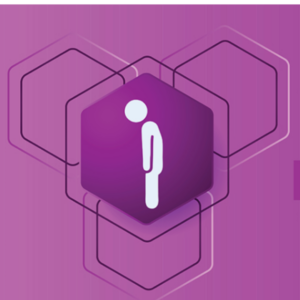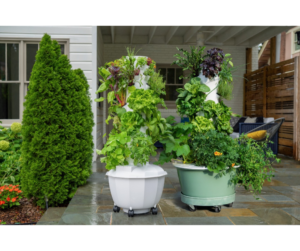We know much more about this very nasty little virus, SARS2-COVID-19, than when I last wrote.
We now know that it enters through the respiratory system, but it infects the cells that line our blood vessels. It typically damages the smallest blood vessels in the lungs, at the alveoli, where blood and air mix to exchange oxygen for Co2. That is why just adding more oxygen or even a respirator doesn’t always help; more oxygen in the lungs can’t get into the blood without the alveoli and their blood vessels working well.
A single layer of special cells, called the endothelium, forms the lining of all our blood vessels. The endothelial cells are largely responsible for regulating inflammation and are normally a non-stick surface, allowing blood to flow without forming clots. These are the cells this virus invades and hijacks. And this is why the symptoms of COVID-19 can occur anywhere in the body – and why the most common problems seen are blood clots and over-inflammation.
For every death from COVID-19, there are 3 who survive with a stroke, and many more with blood clots in various other parts of the body. Long term symptoms are seen in 60% of those discharged from the hospital; many have heart damage, brain dysfunction and exhaustion, with no known treatment.
Inflammation is a normal response to infection but can become extreme in folks ill with COVID-19. It seems that the worse the infection, the more inflammation gets out of control – and in the sickest people, may become what is called a cytokine storm.
The second highest risk factors, after advanced age, are all characterized by chronic inflammation. These include obesity, diabetes and cardiovascular disease. These are all conditions that are 75% preventable with diet and lifestyle.
I continue to be enraged (but not surprised) that the CDC-P, nor any other health organization, has not advised the public to lower both their weight and current baseline inflammation level by simply eating a plant-based diet, not to mention taking Vitamin D which also has solid data and little risk or cost. The science could not be clearer; there is no controversy. Yet, the fast food drive-through lines have never been longer, and most Americans do not know the power they have to lower their own risk.
Overall health, immunity, ideal body composition and inflammation all have much more to do with our diet than with our genes. There is so much we can do to protect ourselves and our loved ones and communities.
I have added a few important supplements to my recommendations from last spring, now that we have a better idea of this virus. Some additional nutrients have shown benefit and medicinal mushrooms are back in my arsenal.
We can take too many supplements, however, and while often necessary to replace deficiencies, too much is no better than too little. But we cannot eat too many vegetables. In food, the balance of antioxidants and other nutrients is perfectly aligned with our cells and our bodies’ requirements.
Omega 3 and other omega oils, like those found in seeds and algae, lower inflammation and possibly stabilize cell membranes. Sea buckthorn oil has been shown to have some interesting anti-viral properties and an elevated Omega 3 to 6 ratio is crucial for lowering inflammation in general.
Like everything else listed here, there is NO research specifically on COVID-19 – none – and no claims are being made, other than that these items are good for immune support and improved overall health.
With all of the following suggestions, please remember more is NOT better!
- Vitamin D, 2000 to 5000 IUs per day suffices, unless you know your blood level, then aim for a blood level of 50-80.
- Zinc, 15 to 30 mg with food once or twice a day.
Depending on your level of risk and your type and frequency of exposures, optional additions to consider include: NAC, glutathione, liposomal Vitamin C, EGCg from green tea, quercetin, curcumin, medicinal mushrooms, CBD and elderberry.
The lifestyle basics have not changed; the best things we can do to support a healthy immune system include:
- eating mostly plants
- avoiding refined sugar
- hydrating
- sleeping more than 7 hours a night
- keeping your own negative emotions and fears in check with meditation, affirmations, and mindfulness
Wear a mask inside public places and keep your distance when outside or wear a mask if that is not possible. Masks may not be perfect, but they help enormously to stop the spread of this airborne virus. The fewer virus particles one inhales, the better the chances of being asymptomatic or only mildly ill. A mask protects others, too. You never know what someone may be dealing with or if they have a high-risk person at home.
Be kind. Be thoughtful. Be smart. Wear a mask. Wash your hands. Keep your distance from others and stay home if you feel sick. It’s really not that hard, and it may save lives.
Our absolutely best chance of living more normally soon is if everybody, always, follows the mask and physical distancing suggestions. It’s not rocket science, it’s basic science – and following guidelines like these is how hundreds of thousands of scientists and health care providers work with dangerous infections and microbes every day and still stay safe. Economic health requires the same precautions.






